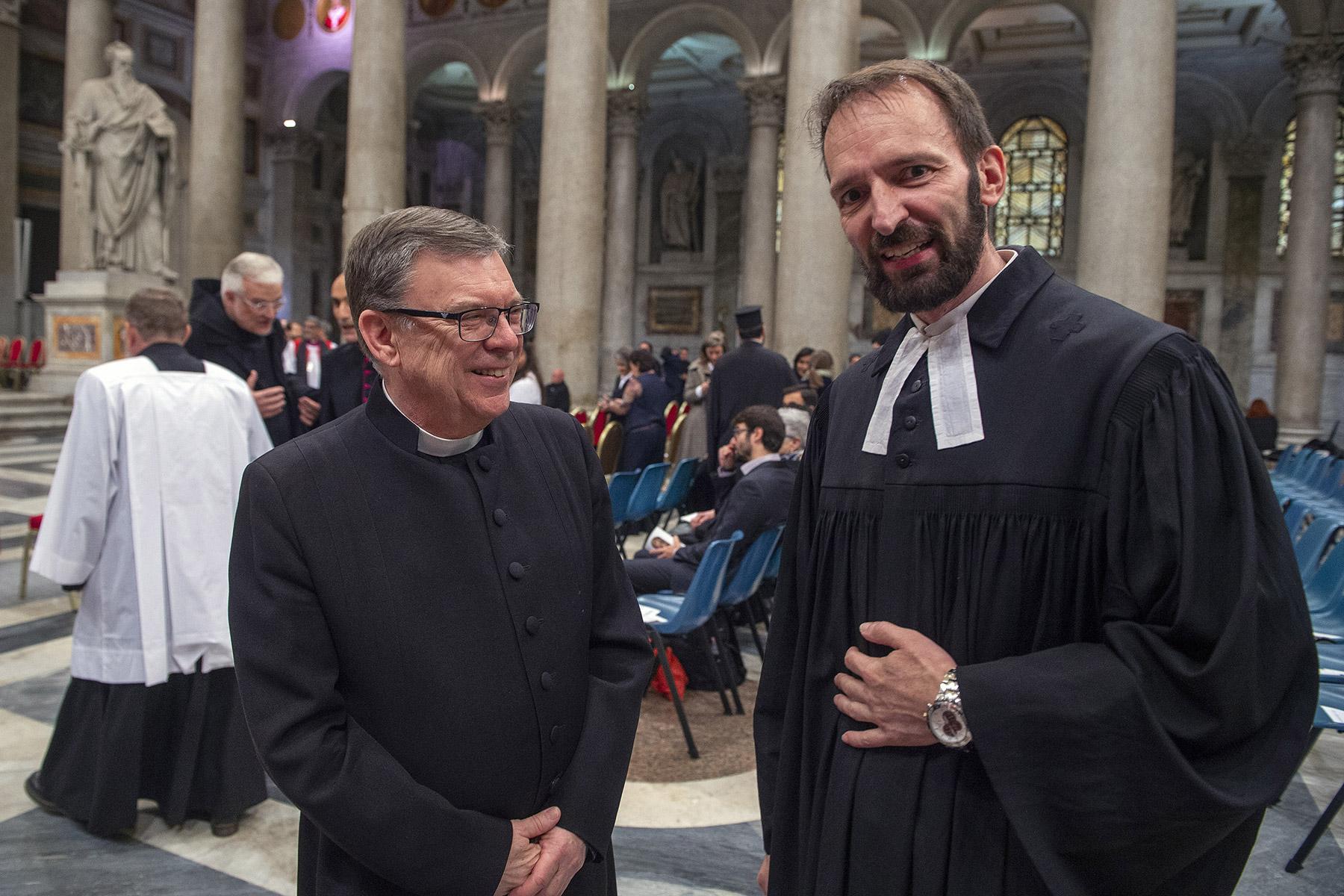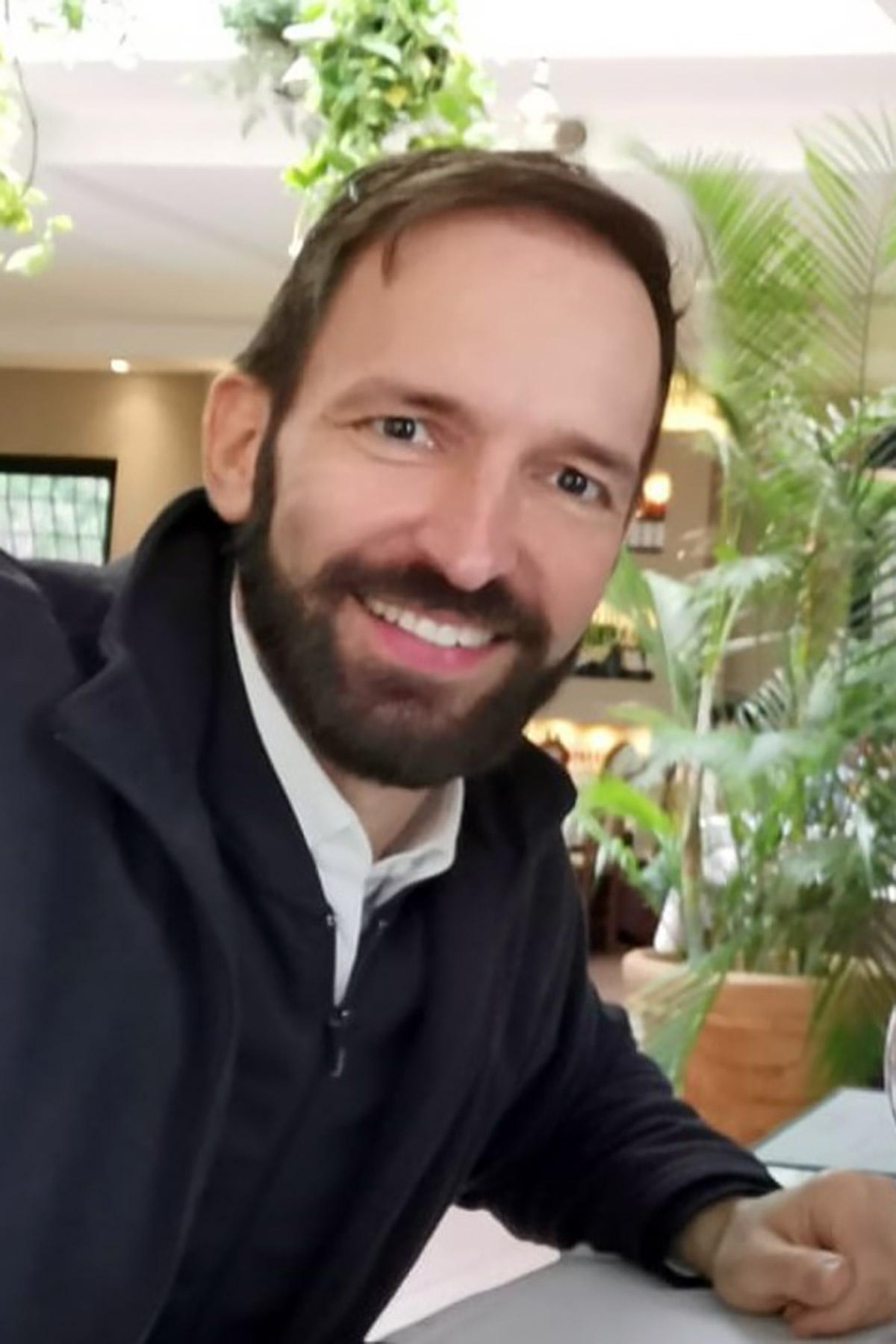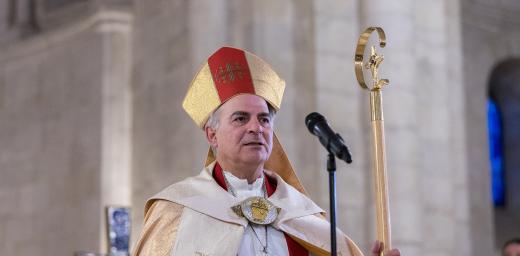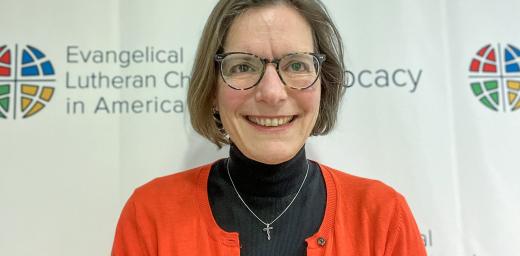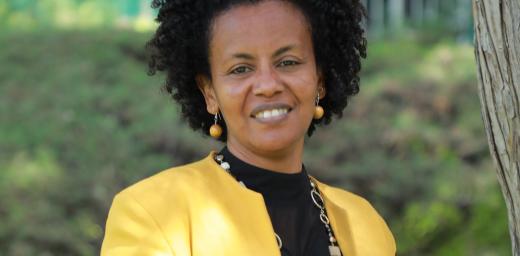German pastor Michael Jonas leads the Evangelical Lutheran Community in Rome
(LWI) - For over a century, the Christuskirche (Christchurch) in central Rome has been home to an international community of Lutherans living and working in the Eternal City. In 1983, Pope John Paul made a visit to mark the 500th anniversary of Martin Luther’s birth. Both of his successors, the German Pope Benedict and the current Pope Francis have also gone to pray and to meet with the community there.
But fostering good relations between Lutherans and Catholics is only a part of the work of this small but vibrant community, currently led by German pastor Rev. Michael Jonas. On any Sunday throughout the year, the church may welcome visiting Lutheran leaders from Scandinavia, African or Asian families wanting to baptize a baby, or a crowd of American tourists searching for a place of familiar Lutheran liturgy and music.
Alongside these varied ecumenical and liturgical commitments, the church also runs outreach programs offering practical and spiritual support to local homeless people and migrant women with young children. Pastor Jonas says it is a “privilege” to oversee these local diaconal ministries, while also being part of a “worldwide Lutheran family.”
Can you share something about your background and where your interest in ecumenism originates?
I was born and raised in southern Germany in the Black Forest region. In that part of Germany, Christians are about half Protestant and half Catholic, so from the very beginning I was used to having Catholic friends and classmates. After school, I studied in Tübingen, but I also spent a year studying in Rome at the Pontifical Gregorian University, as well as at the Waldensian theology faculty there.
You also worked in Tübingen after your ordination, didn't you?
Yes, I was ordained in 2007 and spent my first four years at the university, teaching and working as an assistant chaplain for the students. Not long after that, I returned to Rome in 2011, this time to work at the Melanchthon Center.
Tell us more about what that center does?
It is an important ecumenical study center, founded in 2002 by the Evangelical Lutheran Church in Italy and the Waldensian Faculty of Theology. It was established by German and Swiss Protestant churches to offer the possibility for Protestants from all different countries to study in Rome and to learn more about the Roman Catholic church.
The majority of students are German speakers, but we would like to make it more international. We offer accommodation and Italian-language classes for around ten students a year, so that they can choose from the rich array of theology lessons available at the Catholic universities in Rome. They make friends with Italian Catholics, but they also meet other students from all parts of the world.


